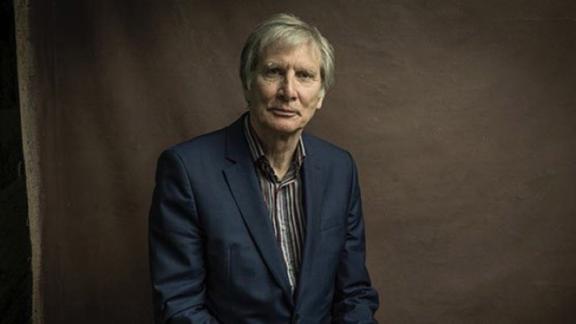A stain on our society? Inequality and mental health

While inequality has recently entered political and public conversation, in mental health it is trailing far behind. On the launch of the Centre for Mental Health's final report from its commission on equality in mental health, David Walker of Oxford Health NHS Foundation Trust takes an in-depth look at the recent turn of events and the implications for mental health.
Run a word cloud for Britain’s public conversation during 2020 and what jumps out big, bold and bellicose is Brexit and there too is of course COVID-19. But what we’ve also talked about a lot during this peculiar era is inequality. And that’s odd.
It’s paradoxical that unfairness should now be so ever present on the lips of thinktanks, policymakers, the NHS, politicians and reporters. After all, the election that took place nearly a year ago ushered into power at Westminster a party that traditionally said the pursuit of equality was fruitless and self-defeating. How could inequality be as ubiquitous when the Conservatives are so dominant at the centre of UK politics? The paradox went further. This year’s inequality talk did not feature anything new – in the sense of producing new discoveries about comparative conditions of life for people of colour, for the poor, for those living with disabilities or those marked out by their gender or sexual orientation. The facts of their lives are known; the research and evidence are extensive.
Yet something has changed, both in politics and wider public discourse. The politics of inequality seem to have moved into the centre ground. The Conservative Party manifesto for the 2019 election said squarely the party was ‘committed to reducing health inequality’; it contained promises on poverty and deprivation; used strong language to condemn discrimination. Under the Conservatives, the Westminster government has produced policy papers with inequalities, plural, as their focus – especially those emanating from the Department of Health and Social Care and the top of the NHS. ‘Levelling up’, especially the income and prosperity of the north of England, has become another of the year’s great phrases.
Even cool cynics about the gap between rhetoric and action must be impressed by this apparent unison.
And yet the score isn’t just missing a few bars – there’s a whole movement been left out. For some years now mental health has been told: your time has come, the message has been received, parity with physical health is the accepted goal. In the English NHS there are welcome signs that this long-awaited re-equilibration is under way. But it’s far from a done deal. And the gaps and deficits remain strikingly high.
Mental health is an arena of inequality on which the spotlight has barely glimmered. The Centre for Mental Health convened a commission of inquiry not because the facts were disputed or there was huge new knowledge to reveal. Undeniably strong connexions align poverty, racial background, gender, disability and belonging to a sexual minority to mental health problems and then, worse, to comparative lack of response within the health system. It’s a double whammy. Mental health still fares worse in the distribution of resources (where were any mental health hospitals on the fabled ‘list of 40’?) and people disfavoured by society fare worse in terms of both having mental health problems and getting any help with them.
Material inequalities – disadvantages in household income, in jobs, schooling, place – cohere with the inequalities that accompany ethnicity and gender and become most readily evident in mental health. Of course, low income and socio-economic deprivation link with worse physical health, too, but in mental health the strain seems all the more virulent. The commission’s report isn’t afraid to use a word from which some shy away – power. Inequalities in power emerge in the workplace, in housing allocations, in how people are treated by the police and connect with the likelihood of having mental health problems and, all too often, with the prospect of getting the attention of professionals (who are themselves stretched and, in some areas, such as the treatment of child and adolescent mental health, thin on the ground).
The commission points to action on two fronts. One is inescapably ‘political’ because it’s about power and wealth and the distribution of income and life chances. Inequality in being unwell stems from the structure and conditions of our society and economy and they need to change. That involves minimum wages, family income support and adequate funding for schools. Meanwhile much can – and is being done – by community groups and local authorities in providing housing and preventing homelessness. Heartening examples abound. Within the NHS, attention is turning to neglected areas: autism and learning disability, the intersection of physical and mental health, the impact of minority status, especially ethnic background, on wellbeing.
Talk does not generate action; the cycles and dynamics of politics and policymaking rarely reflect public concerns in any direct way. Inequality talk during 2020, given edge and volume by COVID-19, will not automatically produce legislation and measures in 2021. But it is shifting attitudes and extending political possibility. The collation of facts, analysis and advocacy in the commission’s report on mental health inequalities takes us forward and brings nearer the eradication of what the report justly calls a stain on our society.
David Walker is chair of Oxford Health NHS Foundation Trust. Follow them on Twitter @OxfordHealthNHSFT


